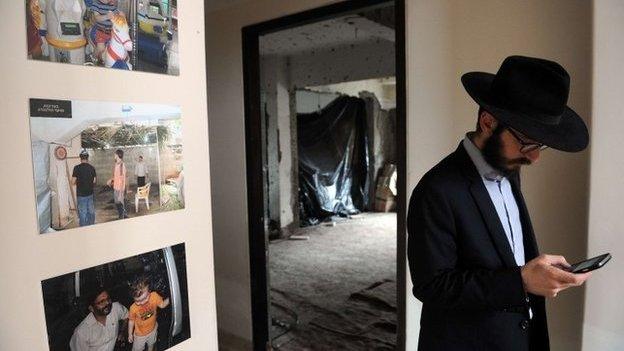India and Israel pledge to combat terrorism
- Published
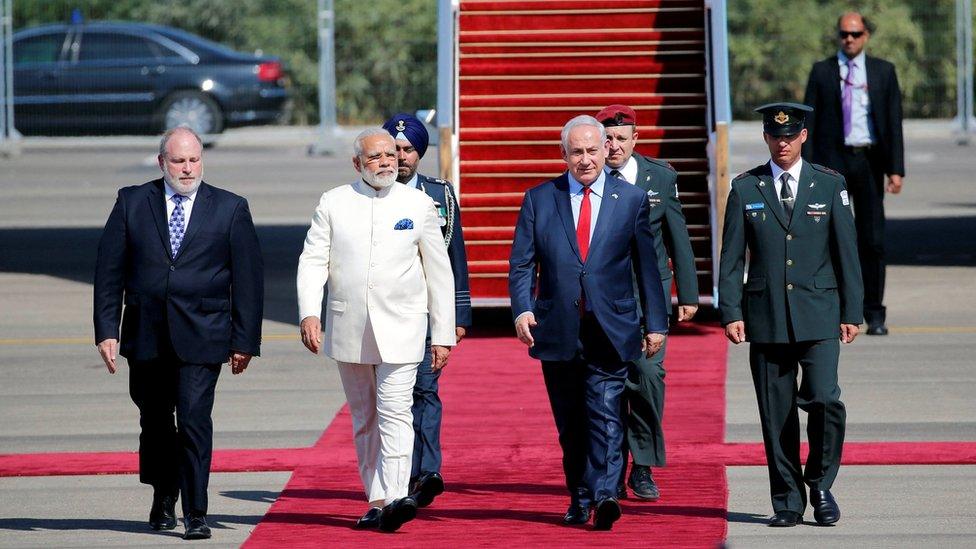
India is now Israel's biggest arms market
India Prime Minister Narendra Modi and his Israeli counterpart Benjamin Netanyahu have signed agreements, including on agriculture and space.
The two leaders, who made a joint statement in Jerusalem, also referred to the "suffering" of both countries from terror.
Mr Modi said they would work together to combat growing radicalisation and terrorism, including in cyberspace.
He is the first Indian prime minister to visit Israel.
The visit is seen by some as a turning point in India's position on Israel. The two countries established diplomatic relations only 25 years ago.
Observers note he will not travel to Ramallah or meet Palestinian leaders, as visiting dignitaries often do.
Both leaders made several references to terrorism, and talked about the "challenge" of dealing with forces that sought to undermine their countries, as well as "strategic threats to regional peace and stability".
Mr Modi also met an Israeli boy, Moshe Holtzberg, whose parents were killed when gunmen stormed a Jewish centre in Mumbai during a 2008 terror attack.
Moshe Holtzberg was saved by his Indian nanny, external, Sandra Samuel, who was treated as a heroine in Israel where she settled with the boy after the attack.
Six Jewish people were killed at the centre, which was one of several places targeted in the attacks.
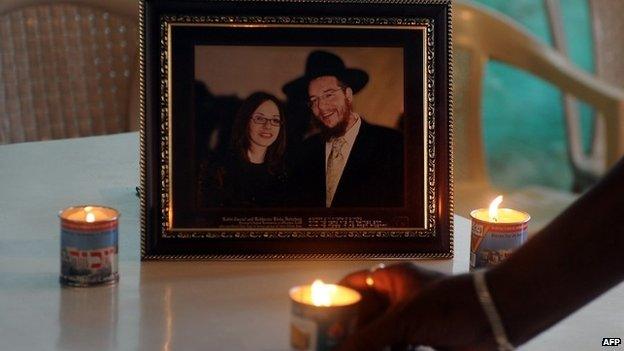
Rabbi Gavriel Holtzberg and his wife Rivkah were killed in the 2008 terror attack
Apart from bilateral deals, Mr Netanyahu said that the two countries had recognised their roles in contributing to global stability, and had agreed to also fund development work in African countries.
Later on Wednesday Mr Modi was to address a gathering of Jewish people of Indian origin living in Israel and would be joined by Mr Netanyahu.
Prior to formal talks on Wednesday, the Indian prime minister was hosted at a three-hour dinner by Mr Netanyahu, and had a flower named after him at the Danziger "Dan" flower farm.
India and Israel have had diplomatic relations since 1992.
For Delhi the relationship has always been a balancing act, given India's sizeable Muslim population and the country's dependence on oil imports from Arab countries and Iran.
Mr Netanyahu has described Mr Modi's visit as "historic", saying it would "deepen co-operation in a wide range of fields - security, agriculture, water, energy - basically in almost every field Israel is involved in".
Israel gave its guest its highest-level red carpet treatment.
Mr Netanyahu has gone beyond the usual protocol of meeting visiting leaders on a few occasions during their trip.
In the case of Mr Modi, he is accompanying him for most of the visit, an honour usually reserved for only top-level guests like the US president.
- Published4 July 2017
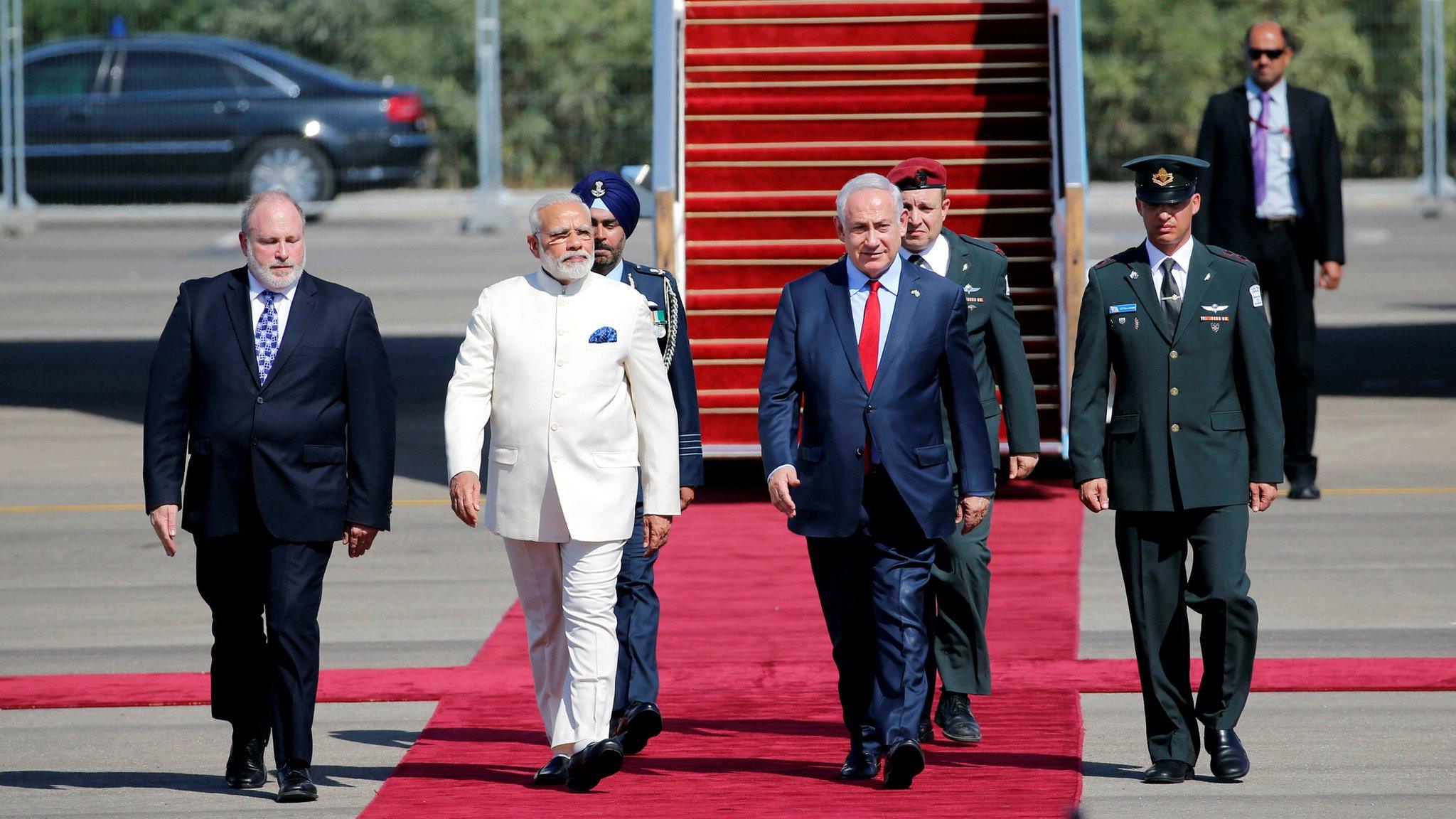
- Published1 June 2015
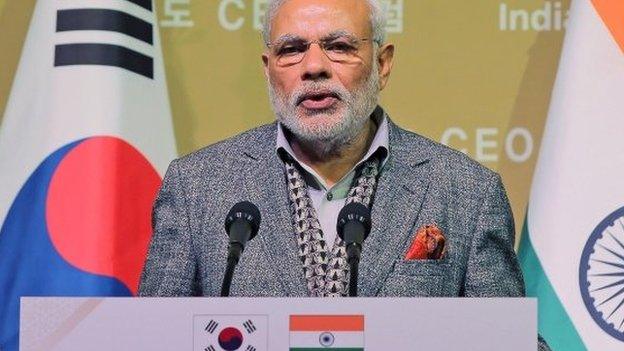
- Published26 August 2014
